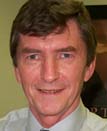Dr. Ann Dale, Professor,
Science, Technology & Environment, Royal Roads University
Trudeau Fellow
 Dr. Dale is a rare hybrid, both an academic and an activist. Currently she is engaged in two major research initiatives at Royal Roads University. First, she is leading the e-Dialogues for Sustainable Development, a series of online dialogues exploring critical issues using the power of the internet to influence public policy. Second, she is working on exploring the relationship between social capital and sustainable community development. Dr. Dale is a rare hybrid, both an academic and an activist. Currently she is engaged in two major research initiatives at Royal Roads University. First, she is leading the e-Dialogues for Sustainable Development, a series of online dialogues exploring critical issues using the power of the internet to influence public policy. Second, she is working on exploring the relationship between social capital and sustainable community development.
| Background |
|
|
Infrastructure choices play a central role in the creation and maintenance of communities that are sustainable, livable, and prosperous. The challenge is to engage with people and their diverse cultures, interests, visions, priorities and needs. One of the major reasons sustainable community development remains largely unresolved within municipalities is gridlock in the planning and implementation processes for decision-making. There are basic disconnections between federal, regional and local governments, between rural and urban communities, and between business and research communities. The challenge is to encourage widespread adoption of the infrastructure decisions being made by communities on the lead-edge of adoption of more sustainable infrastructure.

This series of e-dialogues will explore infrastructure choices in the five focus areas of the Sustainable Infrastructure project: energy, transportation, waste management, land use planning and governance. We will also hold a wrap-up dialogue that finds common ground from these five areas. These e-dialogues will involve experts from the field discussing the critical infrastructure choices necessary for sustainable community development and leading-edge North American examples of sustainable infrastructure development. Through these dialogues, we hope to develop an understanding of how current municipal decision-making may lead toward achievement of sustainability objectives. We hope you will join us in these vibrant discussions.
|
| Panelists |
|
 |
Ann Dale, Project Lead, Moderator
Ann Dale is a professor with the School of Environment and Sustainability, Faculty of Social and Applied Sciences at Royal Roads University and holds a Canada Research Chair in Sustainable Community Development (crcresearch.royalroads.ca/). She chairs the Canadian Consortium for Sustainable Development Research (CCSDR), a consortium of all the heads of research institutes across Canada, and is active in the Canadian environmental movement. Dr. Dale chairs an organization she created, the National Environmental Treasure (the NET) and is the Executive Co-ordinator, Research and Public Policy for the Canadian Biodiversity Institute. From 1998-2000, she led an energy efficiency program on behalf of the Association of Canadian Community Colleges. Previously, she was an Executive with the Federal Government, and was one of the two public servants behind the creation of the National Round Table on the Environment and the Economy (NRTEE).
Dr. Dale is a Trudeau Fellow (www.trudeaufoundation.ca), as well as a Fellow of the World Academy of Art and Sciences. She is also a Board member of the World Fisheries Trust, and the Advisory Committee to the Montreal Institute for the Environment. Dr. Dale holds degrees in psychology and public administration from Carleton University, and a doctorate in Natural Resources Sciences, McGill University. Current research areas include governance, social capital and sustainable community development, biodiversity policy, and deliberative electronic dialogues (crcresearch.royalroads.ca/edialogues). She is a recipient of the 2001 Policy Research Initiative Award for Outstanding Contribution to Public Policy for her book, At the edge: sustainable development in the 21st century.
|
 |
Marilyn Hamilton, Research Team Member, Moderator
Dr. Marilyn Hamilton is Founder of integralcity.com, TDG Global Learning Connections, and TDG Global City Strategies. She takes part in researching, writing, teaching and facilitating. Marilyn is a Founding Member of the Integral Institute and Integral-Ecology, Canadian Sponsor of Spiral Dynamics in the Integral Age, a Certified Spiral Dynamics III Facilitator, and Certified Cultural Transformation Tools Consultant. She has 25+ years of multi-sector, international organization development experience.
Marilyn is Alumna of the Foundation for Community Encouragement and Past-CEO/Chair of Consulting Resource Group International Publishers. She has authored and co-authored several books, discovery games and assessments on learning, leadership and wellness. Marilyn teaches and/or supervises graduate research at Royal Roads University, The Banff Centre, California Institute of Integral Studies and the Adizes Institute. She is a graduate of University of Toronto (BA English, Diploma in Translation) and a Certified General Accountant. She completed her Ph.D. (Administration and Management) in 1999, researching learning and leadership in self-organizing online community systems.
|
 |
John Brennan (Expert Panelist)
John Brennan has some fifteen years of experience in the area of public policy and programs relating to energy use and climate change related issues in Canada. During that time, he has participated in the development of policies, strategies and action plans that lead to the implementation of energy efficiency and climate change programs of Natural Resources Canada. He has managed the Federal Buildings Initiative, an energy efficiency program that advocates public private sector partnering to realize energy efficiency improvements in federal operations.
|
| |
R Forrest Smith B Sc P Eng (Expert Panelist)
As a senior manager and consultant, Forrest has extensive experience in infrastructure and property management. He has in-depth experience and understanding of “sustainable development, energy and environmental issues” facing organizations; from developing sustainability strategies, energy and environmental policies, developing demand side management and resource conservation programs, to hands on experience at the site level in construction, operations and maintenance. He has served as a community association president, and treasurer; participated in Community Round Tables, and municipal environmental advisory committees. With a passion for energy, his professional practice now focuses on facilitating Energy Performance Contracting at military bases and prisons, institutions with significant infrastructure and utility challenges/opportunities. Forrest is married to a partner who shares his passion for “shifting thinking---building capacity” and a principal in EcoSol Consulting Inc. operating out of Victoria BC. www.ecosolcan.com
|
 |
Jim Hamilton (Research Team Member, Expert Panelist)
Jim is a seasoned consultant with extensive experience in the governance and financing of public institutions, especially in relationship to questions of sustainability. Jim's experiences stem from over twenty-five years in analyzing and advising on financial, environmental and sustainability matters while with Hamilton, Thomas and Associates Ltd and previously as a senior executive and analyst within the Treasury Board Secretariat within the Government of Canada. Included among his major contributions is co-founding the Federal Buildings Initiative within Natural Resources Canada. The Federal Buildings Initiative is a government-wide initiative to take advantage of alternative techniques to finance energy and water savings investments, which presently enjoy widespread application within provincial governments, municipalities, hospitals, schools and universities across Canada.
|
 |
Rodney McDonald
Rodney McDonald is a sustainability specialist, working in the spaces between professions, disciplines, and organizations to help advance energy efficiency, green building, and sustainability. He is the Sustainability & Standards Specialist for Manitoba Hydro and Chair of a national federal-provincial-territorial committee generating support to update Canada¹s energy code for buildings, a principal of McDonald & Hardess Sustainability Group Inc., and President of the Manitoba Chapter, Canada Green Building Council. Rodney received a Masters in Environment and Management from Royal Roads University in Victoria, BC, a Bachelor in Economics from the University of Manitoba, and he is a LEED® Accredited Professional. Rodney continues to explore integrated decision-making as it applies to governance, community and organizational sustainability, policy and program development, and integrated design for buildings.
|
| |
Deanna Douglas
Deanna Douglas is Bursar, Langara College, and led the energy efficiency program on behalf of ACCC, 1998-2004. Ms Douglas was instrumental in obtaining LEED certification for Langara's newest building, http://www.langara.bc.ca/news/construction/index.html
|
 |
Scott McLeish
Scott McLeish has worked with Honeywell for fifteen years and has played a pivotal role in over 50 Energy projects in Canada, including the Ottawa Hospital, CFB Winnipeg, CFB Trenton, Communications Research Centre, Public Service Alliance of Canada and Via Rail.
As a result of his dedication to client satisfaction and team building, Scott excelled as both a branch and sales manager. In his current role of Business Development Manager, Scott leads the Federal Buildings Initiative.
Scott’s professional affiliations include:
• Carleton University, Bachelor of Arts
• Building Owners and Managers Association (BOMA) Member
Scott’s varied experience includes a portfolio of diverse energy based projects. For more than ten years, Scott has been in senior roles, generating substantial annual revenues for the Energy Solutions division of Honeywell. Scott resides in Ottawa.
|
|
|

 sustainable? What sources of energy will we use? What kinds of projects will pave the way to a sustainable energy future? Will large scale generation projects dominate the energy landscape, or will there be a growing movement towards distributed generation? All methods of energy generation produce large amounts of waste heat; capturing this heat for practical use is known as co-generation. The excess heat is used to heat buildings and drive industrial processes. Will cogeneration become a standard procedure?
sustainable? What sources of energy will we use? What kinds of projects will pave the way to a sustainable energy future? Will large scale generation projects dominate the energy landscape, or will there be a growing movement towards distributed generation? All methods of energy generation produce large amounts of waste heat; capturing this heat for practical use is known as co-generation. The excess heat is used to heat buildings and drive industrial processes. Will cogeneration become a standard procedure? Dr. Dale is a rare hybrid, both an academic and an activist. Currently she is engaged in two major research initiatives at Royal Roads University. First, she is leading the e-Dialogues for Sustainable Development, a series of online dialogues exploring critical issues using the power of the internet to influence public policy. Second, she is working on exploring the relationship between social capital and sustainable community development.
Dr. Dale is a rare hybrid, both an academic and an activist. Currently she is engaged in two major research initiatives at Royal Roads University. First, she is leading the e-Dialogues for Sustainable Development, a series of online dialogues exploring critical issues using the power of the internet to influence public policy. Second, she is working on exploring the relationship between social capital and sustainable community development. 




